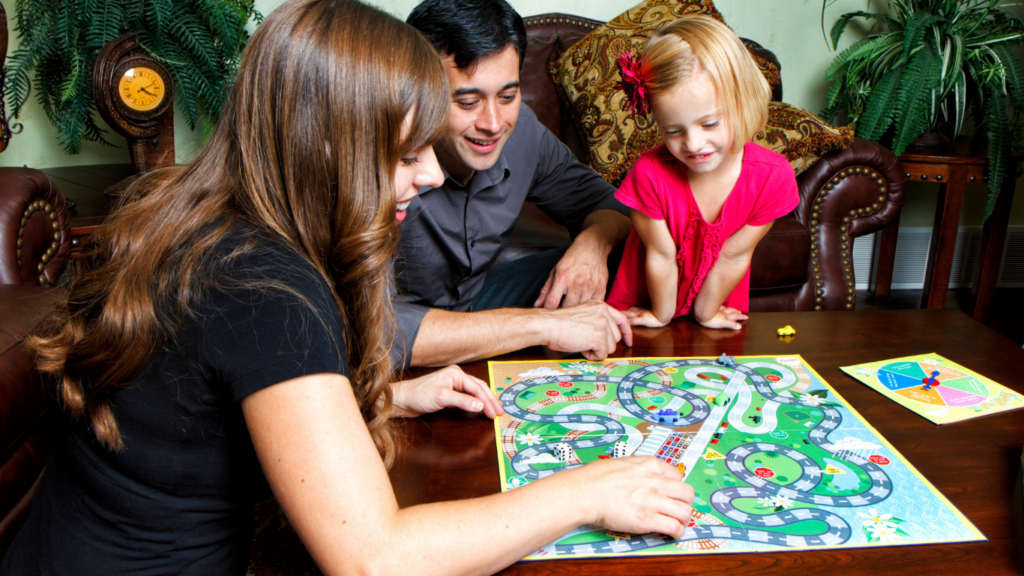I never thought something as simple as a family game night could have such a profound impact on our lives. It started as a casual idea to spend more time together, but it quickly became a tradition that brought us closer than ever. In a world where screens dominate our attention, this small shift reminded us of the joy in laughter, connection, and shared moments.
The Idea Behind Family Game Night
I initially proposed family game night as a way to create more intentional time together amid our busy schedules. With everyone juggling work, school, and personal commitments, it was easy to lose touch. I wanted a simple activity that could bring us all to one place without external distractions.
I chose games because they required participation from everyone. Unlike passive activities like watching TV, games encouraged interaction, conversation, and collaboration. Board games such as Monopoly and card games like Uno became the perfect tools for this purpose. They provided the structure we needed to connect while keeping the atmosphere lighthearted and fun.
Setting the Scene: Our First Game Night Experience
Our first game night began as a small effort to reconnect. I wanted it to feel casual yet engaging, ensuring everyone could participate without pressure.
Choosing the Right Game
I selected games that balanced fun and interaction. We started with Monopoly, a familiar board game that encouraged strategy and conversation. I also included Uno, knowing its simple rules would make it accessible for all ages. Picking games that combined competitiveness and collaboration was key in creating an inviting atmosphere. This mix of options allowed each family member to feel comfortable while joining the fun.
Overcoming Initial Resistance
Not everyone was enthusiastic at first. Busy schedules and personal distractions made it hard for some to see the value of spending a night playing games. Instead of forcing participation, I framed it as an opportunity to relax and enjoy each other’s company. I focused on creating a welcoming environment by providing:
- snacks
- setting a laid-back tone
- avoiding any pressure for perfection
Once the laughter started, skepticism quickly faded, and everyone began to engage wholeheartedly.
How Family Game Night Strengthened Our Bond

Family game night became an unexpected yet powerful way to bring us together. It fostered deeper connections and created moments that reshaped how we saw and supported each other.
Encouraging Communication and Teamwork
- Game nights encouraged us to communicate more openly.
- Strategizing during games like Monopoly required collaboration, pushing us to listen closely and share ideas.
- Even in competitive moments, respectful dialogue emerged, teaching us patience and understanding.
- Team-oriented games like Pictionary highlighted our strengths and revealed how much we could achieve by working together.
- These interactions built trust and improved how we approached challenges outside of game nights.
Creating Lasting Memories
The laughter and surprise during game nights became stories we’d often revisit. Moments like someone unexpectedly winning Uno or a playful debate over house rules added unique charm to our evenings. These shared experiences became memories we carried into our everyday lives, reminding us of the joy in simply being together. Over time, the tradition transformed into a highlight of our week, strengthening both our bond and our appreciation for one another.
The Unexpected Lessons We Learned
Family game nights began as a way to connect, but they taught lessons that went far beyond entertainment. These nights revealed surprising insights about how we interact and grow together as a family.
Patience and Conflict Resolution
Playing games exposed our tendencies to compete and disagree, creating opportunities to practice patience and healthy conflict resolution. When tensions rose over rules or strategies, we focused on listening and addressing concerns calmly. For instance, during Monopoly, disagreements over property trades became moments to practice fair negotiation. Instead of frustration, we turned potential arguments into learning experiences, choosing empathy over stubbornness. These skills now influence how we approach conflicts in daily life, fostering greater understanding.
Celebrating Small Wins Together
Game nights reminded us to value small successes, making each victory meaningful. Whether it was a lucky draw in Uno or solving a Pictionary puzzle just in time, we learned to cheer for and celebrate every family member’s achievement. This habit of finding joy in little moments strengthened our appreciation for each other. It wasn’t just about winning—it became about acknowledging effort and progress, which has carried into how we support each other’s goals outside of game night.
Tips for Starting Your Own Family Game Night
Starting a family game night can create meaningful connections and lasting traditions. Focusing on inclusivity and consistency helps make the experience enjoyable for everyone.
Selecting Games for All Ages
I ensure every game suits varied skill levels and interests to include all family members. Simple classics like Uno work for younger kids, while strategy games like Codenames engage teens and adults. Cooperative games encourage teamwork, and options like Pandemic help everyone work toward a shared goal. Including games with shorter rounds, such as Spot It or Charades, keeps younger participants engaged. For larger families, games with group play, like Taboo or Pictionary, provide inclusive fun.
Staying Consistent and Flexible
I schedule game nights on a regular day that accommodates everyone but stay flexible when conflicts arise. Even shifting the timing or playing for just 30 minutes keeps the tradition alive. I introduce variety by rotating games each week to maintain interest and excitement. In cases where someone can’t join, I encourage one-on-one sessions later or pick games that allow players to start mid-round. By balancing consistency with adaptability, everyone looks forward to game night without feeling pressured.





